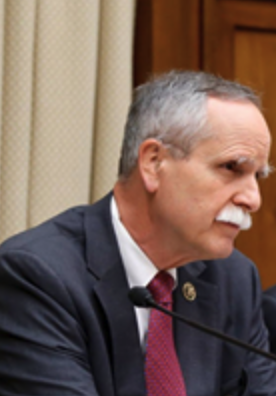Washington, D.C. – U.S. Representatives David B. McKinley (R-W.Va.) and Antonio Delgado (D-NY) introduced bipartisan legislation to help end the digital divide and deliver affordable, quality broadband service to rural Americans. The Community Broadband Mapping Act addresses flawed federal broadband mapping practices and empowers local communities to dispute inaccurate Federal Communications Commission (FCC) internet service status claims.
“The digital divide between rural America and the rest of the nation has been exacerbated by the COVID pandemic. Reliable access to the internet remains a necessity for all Americans no matter where they live,” said McKinley. “Without maps that provide an accurate assessment of internet connectivity, we can’t target resources correctly to parts of the country that need help. This bill will help address this continuing problem.”
“Flawed service maps compiled by the FCC paint an inaccurate picture of upstate broadband access,” said Delgado. “The Community Broadband Mapping Act gives our communities the ability to collect their own data on broadband coverage so that they can challenge the FCC’s inaccurate mapping. This is the first step to ensuring families, farmers, small businesses, and students across New York’s 19th Congressional District can access secure, and affordable broadband service. It is unacceptable that in the 21st century, in the wealthiest county in the world, folks are living without a reliable internet connection. As the pandemic has made even more clear, broadband service isn’t a luxury—it’s a necessity.”
The FCC estimates that more than 21 million Americans lack access to broadband—and that rural Americans are 10 times as likely as those in urban areas to be without coverage. Without an accurate picture of gaps in service, no amount of federal investments can close the digital divide.
The Community Broadband Mapping Act would allow local governments, electric/telephone cooperatives, economic development/community groups, and small internet providers to access USDA Rural Utility Service grants that would allow them to collect information on local broadband coverage. This will allow communities that are incorrectly designated by the FCC as having broadband access to have the information necessary to dispute that status with the FCC.
Background:
Representative McKinley continues to champion legislation that expands broadband access to rural Americans:
In February 2021, McKinley reintroduced the Facilitating the Deployment of Infrastructure with Greater Internet Transactions And Legacy Applications (Facilitating DIGITAL Applications) Act, which would make it easier to develop and permit broadband infrastructure on federal property through online applications.
In October 2020, McKinley helped secured $7.6 million in broadband investment that will provide broadband service in rural and unserved communities in West Virginia.
In June 2020, McKinley introduced the Nationwide Dig Once Act of 2020 which will expand the deployment of broadband internet service to rural and unserved communities across the U.S.
In September 2019, McKinley introduced the Appalachian Regional Commission Reauthorization Act which reauthorizes the Appalachian Regional Commission (ARC) through 2025 and authorizes funding for the ARC at a level of $180 million with $20 million of that specifically dedicated to broadband deployment in Appalachia.
In June 2019, McKinley became an original cosponsor of the Broadband Data Improvement Act of 2019 which requires broadband service providers to fulfill certain reporting requirements, and the Federal Communications Commission (FCC) to establish a challenge process to aid in broadband mapping.
By March 2020, the FCC portion of the Broadband Data Improvement Act of 2019 was signed into law as part of the Broadband DATA Act.

